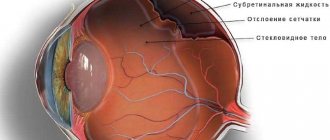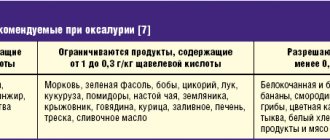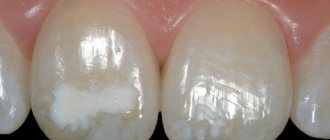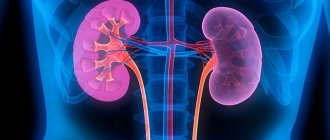Kidney cancer: symptoms and signs
As the tumor grows, it begins to compress and destroy blood vessels, renal pelvis and ureters, causing characteristic symptoms.
The most common symptoms of the disease in advanced and late stages are:
- Hematuria is the appearance of blood in the urine.
Typically, the blood concentration is high enough to change the color of the urine to reddish or dark brown. Urine in the blood is not always a sign of kidney cancer - similar symptoms in men occur with kidney stones, in women - with gynecological problems. However, you need to understand that any bleeding requires the attention of a doctor and professional help. With a kidney tumor, this is especially true, because in this case, the appearance of blood in the urine indicates that the tumor is increasing in size and destroying the organ tissue. This means that the process has already gone far enough, and you need to get rid of the problem as quickly as possible. Therefore, a visit to the doctor should not be postponed until later. - Persistent pain in the side, just below the ribs.
The localization of pain depends on the location of the lesion: in people with cancer of the left kidney, these symptoms will be observed on the left side, if the right organ is affected, the patient will be bothered by pain in the right side. - Lump in the kidney area.
Difficult to detect in obese people.
It should be added that even in advanced stages, about half of all cases of kidney cancer have no symptoms, and the tumor is detected only during a routine ultrasound.
Less common manifestations of the disease include:
- increased fatigue (fatigue, weakness);
- anemia (decreased hemoglobin level in the blood);
- weight loss for no apparent reason;
- increase in body temperature to 38°C and above;
- increased sweating at night;
- feeling of general malaise;
- loss of appetite;
- increased blood pressure.
Kidney cancer: symptoms in women and men
Differences between the sexes are practically not reflected in the manifestations of the disease. The exception is certain signs due to the difference in the anatomical structure of the male and female body. For example, characteristic symptoms of kidney cancer in men include swelling of the testicular veins.
Kidney cancer stage 1
The tumor is usually no more than four centimeters in size, and the lymph nodes have not yet been affected. It does not go beyond the kidney. Metastases in other organs are not detected in the patient's body.
In this case, oncologists give a good prognosis. With timely treatment and proper, comprehensive treatment of kidney cancer, the five-year survival rate ranges from 65 to 95%.
At this stage, operations performed laparoscopically are quite effective. Laparoscopy of the kidney (nephrectomy, or laparoscopic kidney resection) is less traumatic than open surgery and allows the patient to quickly return to normal life.
It is important to take emergency measures before cancer cells begin to spread through the lymphatic and circulatory systems.
3D modeling in the diagnosis of kidney cancer can significantly simplify the doctor’s task. Using data obtained from a CT scan, he creates a three-dimensional picture. It can be static or dynamic. Using the model, surgeons study the possibilities of organ-conserving surgery and analyze the risks of complications. To perform resection and other minimally invasive operations, three-dimensional modeling is necessary.
When to see a doctor
Make an appointment with your doctor as soon as you begin to experience strange pain in your side just below your chest or a characteristic lump appears. You should also visit a doctor if you suspect there is blood in your urine.
It is necessary to understand that even the best specialist is not able to diagnose kidney cancer based on symptoms: a diagnostic examination will be required to clarify the nature of the problems.
If you need a second opinion to clarify your diagnosis or treatment plan, send us an application and documents for consultation, or schedule an in-person consultation by phone.
+7 499 490-24-13
Expert opinion
Kidney cancer stage 2
At the second stage, the size of the tumor can exceed 7 centimeters. The five-year survival rate exceeds 65% and can reach 85% with proper treatment.
The clinical picture is similar to the previous case - regional lymph nodes are not affected, there are no kidney cancer metastases in other organs. But the tumor has already grown into the kidney capsule.
The second stage occurs most often in patients. This is due to the fact that at the initial stage the symptoms are less pronounced, and patients do not even realize that they are associated with cancer. In the presence of any concomitant diseases of the kidneys and genitourinary system, diagnosis becomes difficult.
Fortunately, at stage 2 kidney cancer develops slowly and modern treatment methods are quite effective.
Symptoms
Kidney cancer does not manifest itself for a long time, so it can only be determined through examination. At the beginning of its development, the disease is easily treatable. The main symptoms appear already at a late stage of the pathology:
- Pain in the lumbar region.
- Presence of blood in the urine.
- Palpation of the formation during palpation.
With kidney cancer, the pain is usually dull and mild, becoming aching. Some attribute it to heaviness in the lower back. As the tumor grows, the veins of the spermatic cord (varicocele) begin to expand on the right side. With large neoplasia, anemia, weakness, fever appears and the person quickly loses weight.
Forecast
With timely treatment, the prognosis for the disease and for the patient’s life is favorable. Oncocytoma rarely recurs. However, it is important to understand that surgery should be performed by surgeons experienced in treating this disease.
At the Euroonco clinic, treatment of kidney oncocytoma is carried out in accordance with modern standards and using the latest equipment. The operation is performed by experienced urological oncologists. This approach allows in the vast majority of cases to achieve complete recovery.
Book a consultation 24 hours a day
+7+7+78
What tumors can be detected on ultrasound
Ultrasound examination of the kidneys allows you to detect secondary cancer (metastases) of malignant tumors of the lungs, intestines, uterus, etc. Also, using this procedure, you can detect a number of primary tumors, which include the following.
- tumors . Benign neoplasms in this category include fibroids, adenoma, hemangioma, fibroma, lipoma, dermoid, myxoma, etc., and malignant neoplasms include myoangiosarcoma, lipoangiosarcoma, fibroangiosarcoma and renal cell carcinoma. In addition to them, experts include Williams’ tumor in this category. This disease is most often recorded in preschool children, but can also be detected in adults.
- Tumors of the pelvis. This group includes benign neoplasms, such as angioma, papilloma and leiomyoma, and malignant ones: squamous cell carcinoma, sarcoma of the pelvis, mucoglandular and transitional cell carcinoma.
Causes of kidney cancer
Experts include the following as the main risk factors for kidney cancer in men:
- genetic diseases and hereditary predisposition;
- obesity;
- tobacco and alcohol abuse;
- work at an enterprise associated with constant interaction with various carcinogenic substances;
- prolonged and uncontrolled use of diuretic drugs;
- exposure to radiation;
- a history of kidney disease requiring regular dialysis;
- unbalanced diet with a large amount of carcinogenic substances;
- age over 50 years, etc.
Causes and stages of cancer development
Middle-aged and older men are at risk, since malignant kidney tumors are twice as common in them as in women. Cell changes can be caused by various factors:
- Genetic predisposition;
- Viral, infectious and inflammatory diseases of the genitourinary system;
- Uncontrolled use of diuretics, hormonal or painkillers;
- Organ injuries;
- Smoking and drinking alcohol;
- Obesity;
- Various kidney diseases.
Preparing for an ultrasound
Ultrasound examination of the kidneys is a procedure that requires minimal preparation. The main recommendations for patients are as follows:
- For three days before the kidney examination, you should follow a diet: food should be well digestible and light. Foods that cause bloating or increased gas formation (brown bread, sauerkraut, carbonated drinks, fruit juices, raw fruits, whole milk, etc.) must be excluded;
- the last meal should be no later than 8 hours before the kidney examination;
- The procedure requires a full bladder, so it is recommended to drink several glasses of still water an hour before the ultrasound;
- Before an ultrasound examination of the kidneys, you should not take diuretics;
- 4 hours before the procedure, you must refrain from smoking: changes in the vascular system caused by nicotine can blur the picture and interfere with tumor detection and accurate diagnosis;
- If there are constant problems with the intestines that are not corrected by diet, the patient is recommended to take medications that reduce gas formation before the examination.
Treatment and prevention of kidney cancer
There is no 100% guarantee against kidney cancer. But we must remember that it is easier for adherents of a healthy lifestyle and proper nutrition to avoid this: in a healthy body, various neoplasms “take root” much worse than in an organism with a weakened immune system.
All methods of treating kidney cancer are divided into surgical and non-surgical. The most effective, regardless of the degree of kidney cancer, are the methods of surgical treatment that have two directions:
- Complete removal of the affected kidney, or nephrectomy. The tactics of the operation are chosen in accordance with certain research data. Depending on the location of the tumor and its growth into other tissues, the kidney, adrenal gland, regional lymph nodes, perinephric tissue, etc. can be simultaneously removed. Such an operation is impossible if the functions of the second kidney are impaired or absent.
- Nephro-sparing methods of surgical treatment, or resection. This method involves preserving the affected kidney, but removing the tumor and some of the healthy tissue located near it.
Non-surgical treatment methods are of auxiliary value and are used more often after surgery. The treatment method is selected individually. In some cases, patients are prescribed immunosuppressive and targeted therapies that can slow down the division of cancer cells, their growth and spread, and also prevent the blood supply to the tumor. Another direction of immunotherapy is the formation of antitumor immunity in recurrent kidney cancer.
Chemotherapy and radiation therapy are not effective methods of treating kidney cancer; they are used only during the process of metastasis to other organs and systems.
The fourth stage of kidney cancer is practically untreatable, and therapy is exclusively symptomatic, aimed at maintaining and improving the patient’s quality of life.
Where to get diagnosed
You can undergo an ultrasound of various organs, including the kidneys, at the urological center of branch No. 1 of the Federal State Institution “GVKG im. Academician N.N. Burdenko". The advantages of our multidisciplinary hospital include:
- significant experience in the field of diagnosis and treatment of diseases of a urological nature (the hospital became an independent structural unit back in 1974);
- professional staff of specialists (all diagnostic and treatment procedures are carried out by doctors of the highest category);
- a full range of services in the field of urology - from thorough diagnostics to conservative treatment and removal of kidney tumors;
- technical equipment that meets modern criteria (hospital equipment allows for highly accurate diagnostics and minimally invasive interventions that improve the quality of life of patients);
- comfortable rooms equipped with everything necessary (in which the patient can comfortably recover after treatment).









